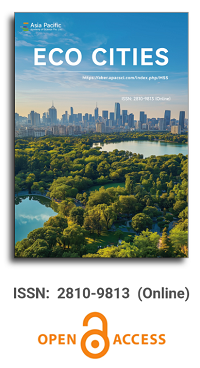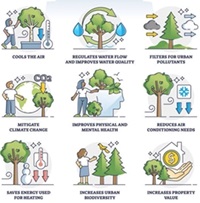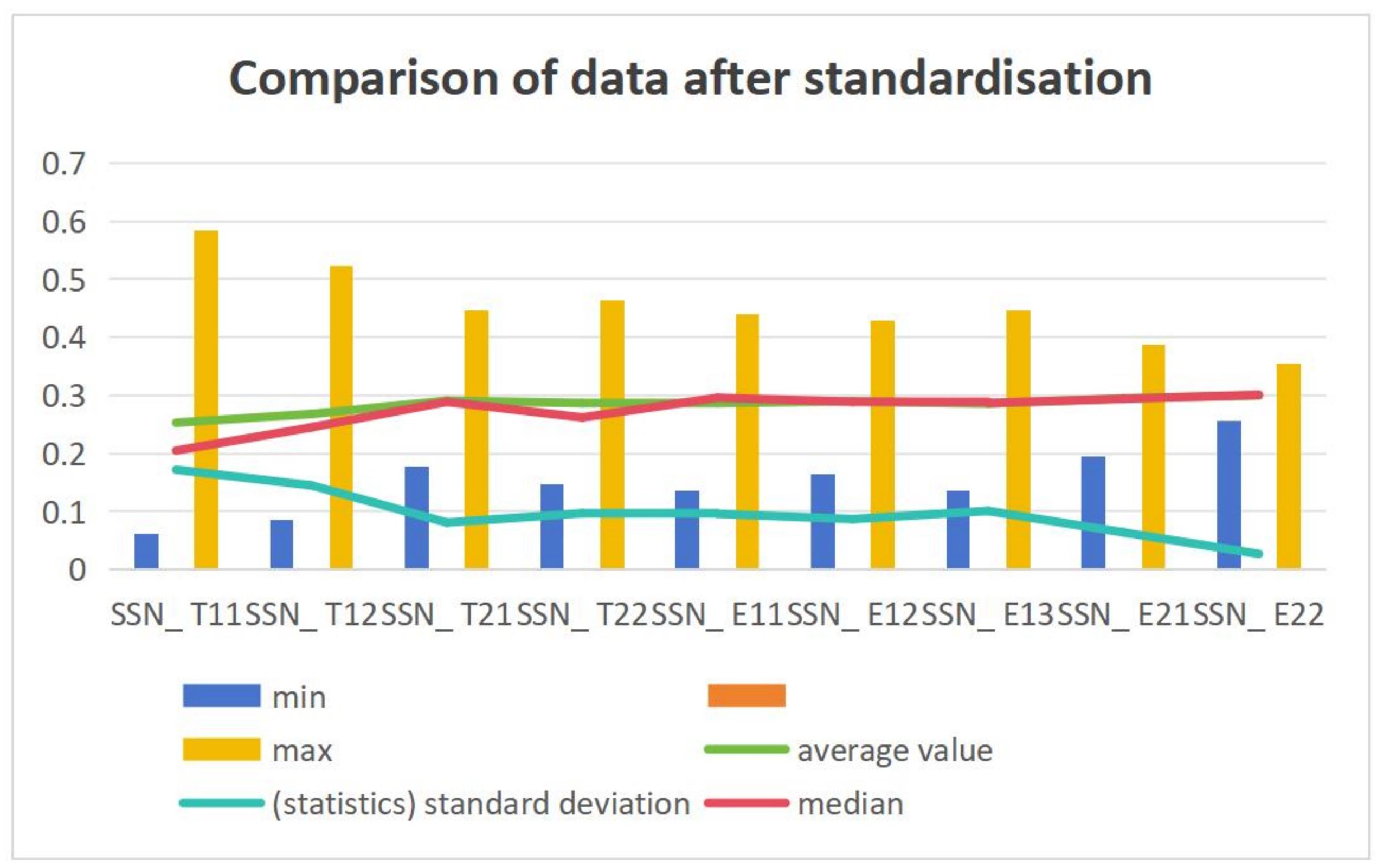


An assessment of household solid waste management in Mainpuri, Uttar Pradesh, India
Vol 5, Issue 2, 2024
Download PDF
Abstract
Rapid industrialization, urbanization, population growth, and migration from rural areas have resulted in increased solid waste generation in developing cities, which is commonly regarded as the most significant urban issue. The improper disposal of waste and inefficient collection methods is a significant problem in most of the municipalities in Indian cities. This challenge is further compounded by unscientific waste treatment practices, lack of modern technology, and limited resources. This study aims to assess the status of solid waste generation and disposal across different household income groups and to evaluate how Mainpuri manage and handles the solid waste management system. The study is based on primary data collected through a household survey in Mainpuri city, covering a sample of 1,836 households from various income groups. The data used in this assessment was collected from household surveys and government records. Although there is a recycling plant in operation, its capacity is inadequate to address the increasing waste generation and demands of the community. This shortfall underscores the need for enhanced waste management strategies and infrastructure to effectively cope with the rising volumes of solid waste. As a result, large quantities of solid waste accumulate in low-lying areas near the Isan River and the proximity of the plant. Without a comprehensive solid waste management plan in the municipality, the situation is likely to deteriorate further. Mainpuri City urgently needs a sustainable strategy to effectively manage its solid waste, addressing both current challenges and future demands. Implementing such a strategy is essential for improving public health, environmental conditions, and overall quality of life in the city.
Keywords
References
- Abdel-Shafy HI, Mansour MSM. Solid waste issue: Sources, composition, disposal, recycling, and valorization. Egyptian Journal of Petroleum. 2018 Dec 1;27(4):1275–90.
- Sharholy M, Ahmad K, Mahmood G, Trivedi RC. Municipal solid waste management in Indian cities - A review. Waste Management. 2008;28(2):459–67.
- Pal MS, Bhatia M. Current status, topographical constraints, and implementation strategy of municipal solid waste in India: a review. Arabian Journal of Geosciences. 2022 Jun;15(12).
- World Economic Forum. The Fourth Industrial Revolution [Internet]. 2016 [cited 2024 Nov 4]. Available from: https://law.unimelb.edu.au/__data/assets/pdf_file/0005/3385454/Schwab-The_Fourth_Industrial_Revolution_Klaus_S.pdf
- Agarwal Professor R, Chaudhary Associate Professor M, Singh J. WASTE MANAGEMENT INITIATIVES IN INDIA FOR HUMAN WELL BEING. 2015.
- Eshete H, Desalegn A, Tigu F. Knowledge, attitudes and practices on household solid waste management and associated factors in Gelemso town, Ethiopia. PLoS One. 2023 Feb 1;18(2 February).
- Hajam YA, Kumar R, Kumar A. Environmental waste management strategies and vermi transformation for sustainable development. Environmental Challenges. 2023 Dec 1; 13: 100747.
- Abubakar IR, Maniruzzaman KM, Dano UL, AlShihri FS, AlShammari MS, Ahmed SMS, et al. Environmental Sustainability Impacts of Solid Waste Management Practices in the Global South. Int J Environ Res Public Health [Internet]. 2022 Oct 1 [cited 2024 Nov 4];19(19):12717. Available from: https://pmc.ncbi.nlm.nih.gov/articles/PMC9566108/
- Nayanathara Thathsarani Pilapitiya PGC, Ratnayake AS. The world of plastic waste: A review. Cleaner Materials. 2024 Mar 1; 11: 100220.
- Son LH, Louati A. Modeling municipal solid waste collection: A generalized vehicle routing model with multiple transfer stations, gather sites and inhomogeneous vehicles in time windows. Waste Management. 2016 Jun 1; 52: 34–49.
- UN. United nations urban agglomeration wall chart: population studies no. 232. 2004;
- Hoornweg DBT. What a Waste: A Global Review of Solid Waste Management [Internet]. World Bank, Washington, DC; 2012 [cited 2024 Nov 4]. Available from: https://hdl.handle.net/10986/17388
- General IR. Census of India 2011: provisional population totals-India data sheet. General Census Commissioner, India Indian Census. 2011;
- Chadna, R.C. geography of population: concepts determinants & patterns. Kalyani publisher
- CPCB. Minutes of interactive meeting conducted by CPCB with ULBs on MSW Mgmt. held on March 2. 2017;
- Khan, N. (2005). Water Supply and Sanitation Conditions in Aligarh City. Aligarh Muslim University.
- Mohd, S. (2005). Household Level Waste Management in Aligarh. Aligarh Muslim University.
- Siddiqui, Z. H. (2003). Urban Sanitation and Health: A Geographical Study of Kanpur City. Banaras hindu university
- Davern M, Rodin H, Beebe TJ, Call KT. The Effect of Income Question Design in Health Surveys on Family Income, Poverty and Eligibility Estimates. Health Serv Res [Internet]. 2005 Oct [cited 2024 Nov 4];40(5 Pt 1):1534. Available from: https://pmc.ncbi.nlm.nih.gov/articles/PMC1361202
- Census. (2011). Primary Census Abstracts, Registrar General of India, Ministry of Home Affairs, Government of India.
- Mishra, K. (2018). Mainpuri Samagra. Kusum publication, Allahabad.
- Singh, M., Singh, M., & Singh, S. K. (2024). Tackling municipal solid waste crisis in India: Insights into cutting-edge technologies and risk assessment. Science of The Total Environment, 917, 170453.
Supporting Agencies
Copyright (c) 2024 Mohini Saran, Salahuddin Mohd, Venkat Choubey, Atul Kumar, Abhishek Rajak, Manoj Kumar
License URL: https://creativecommons.org/licenses/by/4.0/

This site is licensed under a Creative Commons Attribution 4.0 International License (CC BY 4.0).

Chinese Academy of Sciences, China
Indexing & Archiving
Asia Pacific Academy of Science Pte. Ltd. (APACSCI) specializes in international journal publishing. APACSCI adopts the open access publishing model and provides an important communication bridge for academic groups whose interest fields include engineering, technology, medicine, computer, mathematics, agriculture and forestry, and environment.



.jpg)

.jpg)



